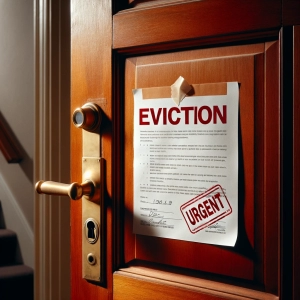The Issue of Squatters in Italy
In Italy, the phenomenon of squatters is a complex and controversial issue. It intertwines themes of law, social policy, and public order.
Squatters are individuals who take possession of properties without the legal consent of the owner.
Obviously, this phenomenon raises significant questions about balancing the protection of private property and the right to housing. These are two fundamental principles enshrined in the Italian Constitution.
For more information book a Free preliminary consultation.
Italian Legislation and Relevant Articles
Italian legislation addresses the issue of squatters primarily through the Criminal Code and specific laws regarding leases and illegal occupation.
- Criminal Code, Article 633: This article punishes anyone who arbitrarily invades another person’s land or buildings, whether public or private, with a view to occupying them or deriving any other benefit from them, shall be punished, on complaint by the offender, by imprisonment for between one and three years and a fine of between EUR 103 and EUR 1,032.
- Law 27 July 1978, No. 392 (Fair Rent Act): Although not directly addressing illegal occupation, this law regulates the relationship between landlord and tenant, providing the legal framework within which property rentals must occur.

Eviction Procedures for Squatters in Italy
When someone illegally occupies an Italian property, the owner can request the authorities’ intervention to reclaim possession, although the process is not as simple as it might seem.
The standard procedure includes filing a police report, where the owner must report the illegal occupation to the competent authorities.
This report initiates criminal proceedings against the squatters and is followed by an eviction request filed by the owner with the court.
The judge, upon evaluating the situation, may issue an eviction order.
However, if minors or vulnerable individuals are involved, the situation becomes more complicated.
Dealing with Squatters in Italy: Legal Assistance
As previously mentioned, handling an illegal occupation can pose complexity and stress for both the property owner and the involved parties.
Therefore, we highly recommend property owners to seek legal assistance from a lawyer specializing in real estate.
Because of the complexity and the lengthy nature of the procedure, only a lawyer specialized in this field can provide support at various stages of the process and give their clients peace of mind.
- Legal Advice: Assessment of the situation and suggestions on legal actions to protect property owner rights.
- Drafting the Report: Assistance in drafting the report for the competent authorities, ensuring inclusion of all necessary elements.
- Filing the Eviction Request: Preparation and filing of the eviction request with the court, gathering the necessary evidence to support the case.
- Court Representation: Legal representation during hearings to ensure the process follows procedures and respect of the property owner’s rights.
- Execution of the Eviction Order: Coordination with the bailiff and, if necessary, with law enforcement to ensure effective execution of the eviction order.
The Right to Housing
Balancing the protection of private property and the right to housing stands as one of the most controversial aspects.
The Italian Constitution, in Article 47, enshrines the right to housing and advocates for policies facilitating access to housing.
However, finding this balance requires respecting private property.
Therefore, legislators and policymakers must address the root causes of the issue, rather than just mitigating its effects. This ensures a fairer and more inclusive society where everyone respects and protects each other’s rights.
Safeguarding Your Italian Property: Tips for Foreign Buyers Against Illegal Occupation
Foreign buyers can adopt various practical measures to prevent the illegal occupation of their properties:
Installation of Security Systems: Installing alarm systems, surveillance cameras, and reinforced doors can deter attempts at occupation. These systems can also provide evidence in case of invasion.
Professional Property Management: Entrusting property management to a local real estate agency or a reliable caretaker can ensure that the house is regularly checked and any occupation attempts are immediately reported to the competent authorities.
Neighbours and Local Community: Establishing good relationships with neighbours and engaging with the local community can enhance vigilance over the property. Neighbours can promptly alert the owner or authorities in case of suspicious movements.
To discuss your situation, get in touch for a free consultation, or click here to get all our FREE guides for foreigners planning to renoveting, buy, sell or live in Italy.
Finally …
At De Tullio Law Firm, we specialize in property, inheritance, residence, and family law matters in Italy. Whether you’re considering purchasing a property anywhere in Italy or have inquiries about these legal areas, don’t hesitate to contact us. We offer a complimentary preliminary consultation to address your concerns and provide expert guidance.


